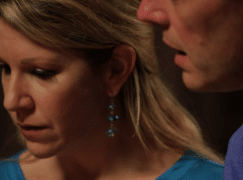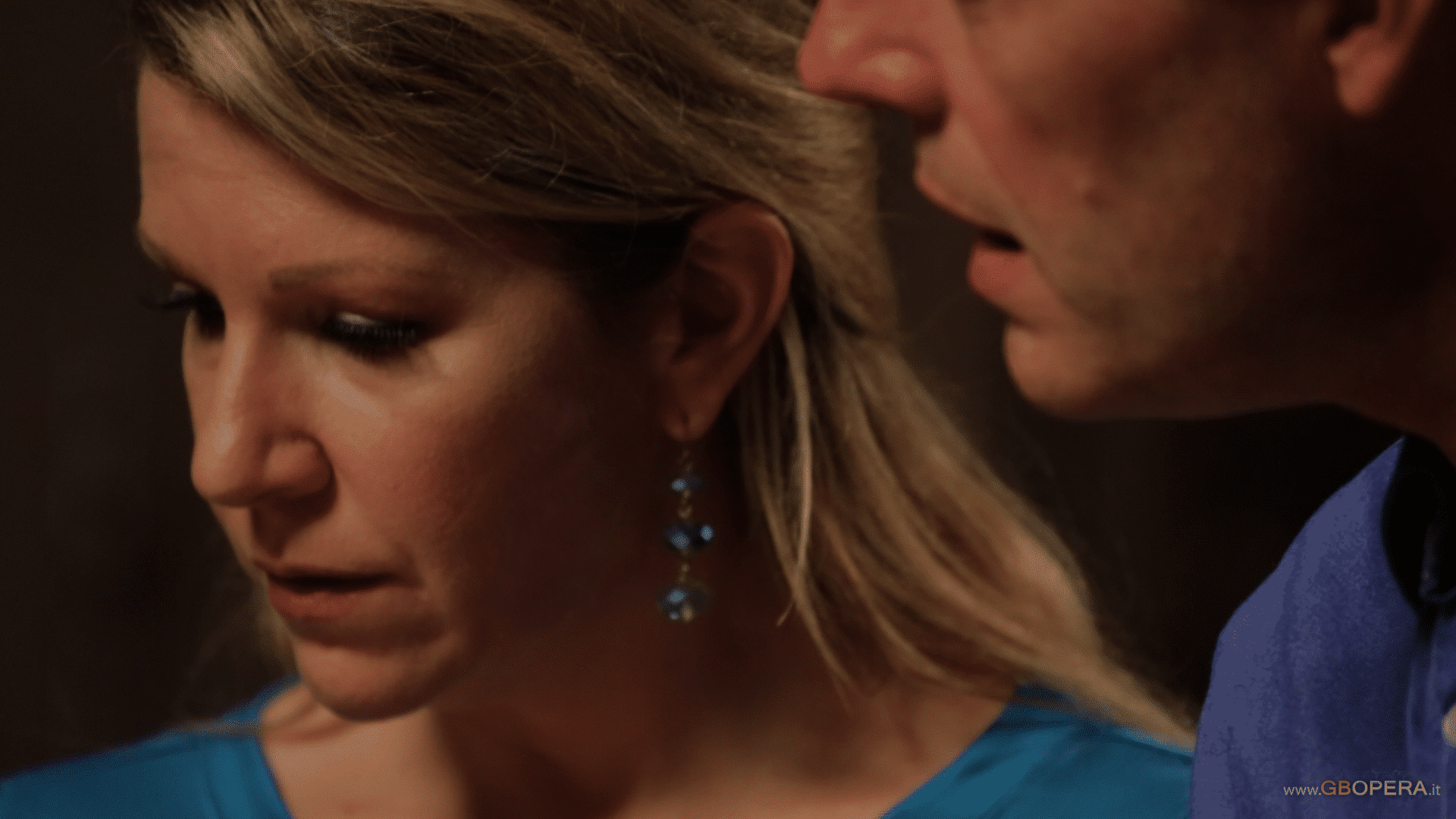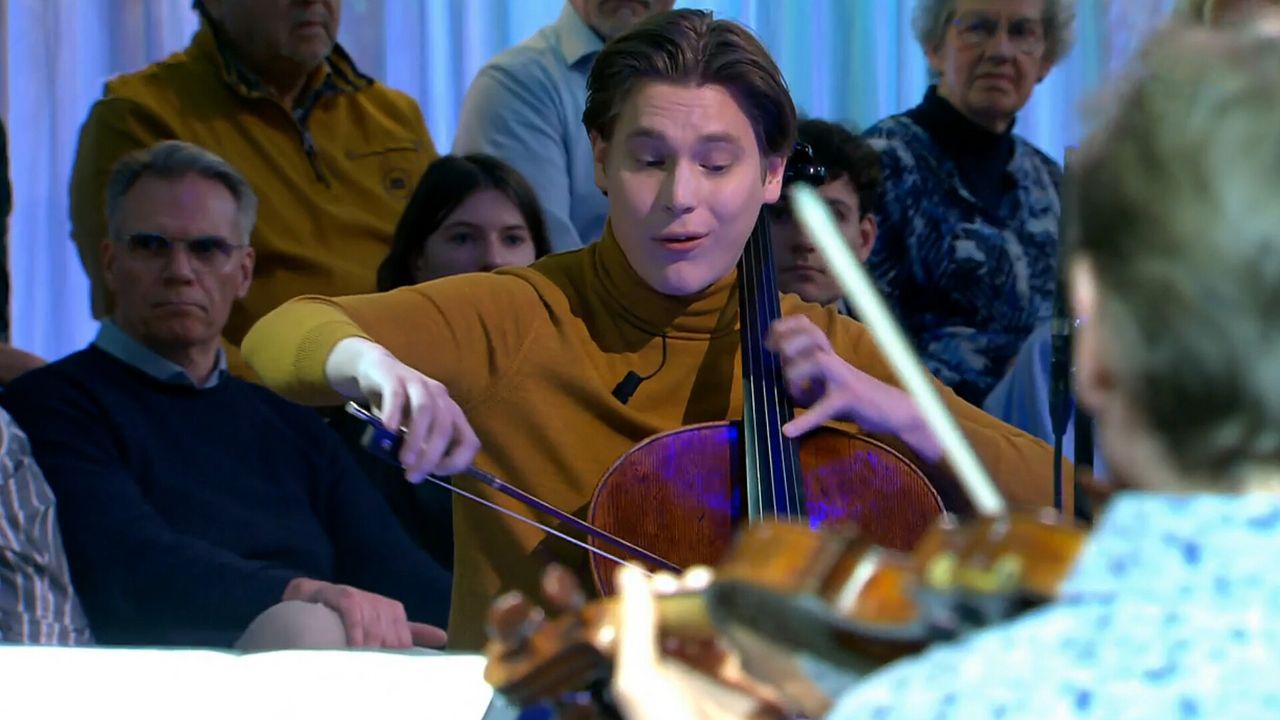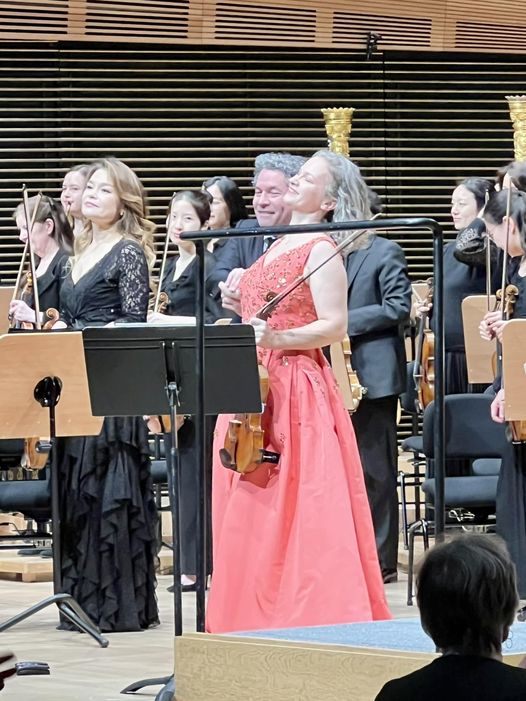Judges like this are crushing young talent
mainIn her Living the Classical Life interview today, Joyce DiDonato recalled the vocal expert in London who, 20 years ago, told her that she had nothing to offer as an artist.
She politely refrained from naming the man.
But we know who he is, and where he lives.
He was then, and is still now, considered an authority on the singing voice.
He sits on commissions and competition juries. And he tells young people ‘you have nothing to say as an artist.’
Classical music nurtures such negative spirits.
It’s time we kept them away from contact with young people.
Joyce survived the treatment. Many others did not.







*But we know who he is, and where he lives.*
What, you a Soprano now?
The comment of the year. Brilliant.
You beat me to it! That’s mob talk.
I was once having a quiet drink at a bar that was, despite its Irish name and decor, as they say, “All Mobbed Up.”
A certain guy’s name was mentioned, and a hush fell. Someone then quietly said, “He should have his wife start his car for him.”
That’s what went through my mind as I read NL’s blog entry.
Then again, as the wise guys might tell you, were they to think you were worth the time of day…
Need I say more?
jm
Nice little web site you got here. Be a shame if sumpthin happened to it.
This is the problem in such a brutally competitive profession where many are called but few are chosen. People like this coach/judge need to make judgements about who will make it and, however eminent they are, they will get it wrong sometimes. There is never a good way of putting this opinion across, but it’s not to say that the individual could not have done it in a less crushing manner.
Yes, there are good ways to deliver bad news. It is called constructive criticism. In my interactions with her, Ms. DiDonato is a very positive person, so I am not surprised that she chooses to put a positive spin on the long ago interaction; perhaps erring too much on looking for some truth in the negative (damning) comments from the adjuditcator. I am just thankful for her that it did not derail her career. If you’ve never been part of a vocal competition, they are riddled–not entirely, thank goodness–by people who have no musical or vocal training beyond avocation. This is particularly the case with the regional Metropolitan Opera Auditions.
“Classical music nurtures such negative spirits. It’s time we kept them away from contact with young people.”
“‘We spend too much time trying to get it right,’ she now says.”
Time and time again while carrying an instrument people will let me know that they *used* to play an instrument. Too often the story they say is that they quit because their teacher told them they weren’t any good. So instead of finding a way to cultivate a life long love of classical music and maybe a fun amateur hobby, these people were basically told to sod off.
Both teachers and professionals have been obsessed with quality and competition for so long we’ve forgotten that it is culture, not sport or rocket science.
The worst in music life is the competition mind set, as if musicians are horses.
+1
“Competitions are for horses, not artists”
(Arthur Rubinstein)
Didn’t Bartok say that?
I think Rubinstein said that Bartok said it. But there are rumors that Bartok misquoted Mahler who had supposedly said, deploring musicians’ poverty: ‘Horses are for artists, not for competitions’.
DiDonato brilliantly addresses the question of discouraging comments at 6:15.
Educators, competition judges, parents, all should know how to offer constructive criticism. Many young people don’t have the resilience young DiDonato had, and can be crushed by negative comments. And yet false reassurance can be just as destructive in the long term.
DiDonato must have evolved tremendously as an artist. She has a hell of a lot to offer in this performance of Dido’s lament:
https://vimeo.com/258154581
Hard to listen to it with a dry eye.
“Many young people don’t have the resilience young DiDonato had, and can be crushed by negative comments. And yet false reassurance can be just as destructive in the long term.”
This 2nd idea is SO important! Because when people realise it sometimes it is too late to restart…
Despite the fact that classical music often evokes feelings of beauty, sensitivity and gentleness, I have always been struck by the paradox of a classical music world that is indeed rife with particularly mean-spirited, vicious and destructive people. At my own level, I can perfectly relate to what Ms. Di Donato is sharing with us here, having too studied with a world-renowned authority (more than one, in fact) who was unfortunately not quite as impressive on a human level. We all heard the stories of famous and even legendary conductors who could easily exhibit sadistic, perhaps even psychopathic, tendencies — the flipside of this, though, being the tendency, for many classical musicians, never to outgrow the stage of apprenticeship and, in many ways, to remain confined to a somewhat infantile state throughout their lives, deriving their only sense of self-worth from the validation and approval of so-called authorities and/or from the quality of their playing. This is why, in my opinion, classical music for many turns out to be a veritable hindrance to a healthy mental development. The point is well taken: Di Donato was indeed able to transcend it, which speaks volumes about her exceptional strength and self-esteem — unfortunately, for many who may not be as strong, the resulting pathologies may be long-lasting.
One can say the same about many other professions, especially those that are very competitive to enter such as university research, law, medicine, etc.
Except that in such professions, there still are relatively “objective” standards which cannot be simply ignored and which must be acknowledged, whereas in classical music — as perhaps are many of the arts — such objectivity is in many ways lacking (except in the most rudimentary ways, such as technical accuracy) and therefore perfectly capable artists can easily find themselves destroyed by a subjective judgment that somehow claims to be authoritative. Contrary to law and medicine, it is perfectly possible in classical music to reach a very high level and yet remain perfectly incapable of providing for oneself a livelihood thanks to one’s skill — not to mention the even more remote possibility of building a career.
That is true, and the opposite is also true, talentless people parading as brilliant musicians (and acquiring career and lots of money) and nobody seems to notice.
But was this not always so? (Music history.)
I suppose Cziffra would be an example of a star of past decades, who may have raised eyebrows on stylistic grounds. But for every Cziffra there were more pianists of the highest level of refinement among the very famous.
Hard to prove, but in the four decades I’ve been closly following the music scene I think I’ve seen an increasing mismatch between talent and careers among performers. Among musicians with big international careers, those who have achieved much greater prominence and financial success now probably make a greater proportion than they used to.
The reverse, prodigiously talented musicians in obscurity, is harder to quantify.
But she actually said in the interview that the ‘authority’ was right: that she had not anything to ‘say’ as herself and had tried to meet all the conventional requirments of a singer. The ‘authrotiy’ may have meant it differently, but Di Donato took the comment to another level and made it work for her.
That sounds like good constructive criticism to me.
Good discussion, and yes Joyce was able to transcend this criticism largely because she is an interpretive artist, i.e. a singer rather than a creative one, i.e. a composer. Of course interpretation can’t be evaluated in a scientifically measurable way, but I think it’s fair to say that most of us would be likely to agree in general terms regarding the quality of a musical performance.
I’m convinced that the sort of criticism we’re discussing here is entirely negative, it has no upside. But that said, we don’t have a shortage of performers who are beloved of the public. If there is a crisis in that regard it is that we may have too many and paradoxically, for that we also have the teaching profession, the ‘education imperative’ to thank.
Not so with composers I’m afraid. That is a genuine crisis, and 100% the creation, indeed the failure of this kind of (for want of a better description) ‘learned authority’. I always hesitate to share this because it’s a little unfair to both parties and it’s toe-curlingly horrid, but I think there is a public interest here. The clip is called ‘The Worst Composition Lesson’. Discuss?
https://www.youtube.com/watch?v=6s_TPHSQPXw
That was a terrible ‘lesson’ and the poor girl went for the safe tea choice (regular black with milk and sugar) which points towards the justified desire of youth for some traditional framework that would acutally HELP her. When anything goes, as is custom today, it becomes impossible to teach composition. When it is about choral writing (as in this clip), students should not be spanked with spiritual condemnations but be taught to imitate the traditional Palestrina counterpoint which develops the right feeling for voice leading and harmony. In teaching composition, the only way to develop any talent, however modest, is traditional craft, after which the student may go his own way. And that craft is not an easy thing if it is done seriously, that is: not merely the letter but especially the spirit.
The worst kind of composition teaching however, is the Schoenberg kind: everything is analyzed, labelled, rationalized, until students have everything in their head and nothing left in their soul. Vincent d’Indy (late 19C) was another influential one: writing books, instructing every available youth, putting everything in boxes so it wouldn’t escape. Debussy called that: ‘mandarine work’, i.e. uninspired, rationalistic nonsense killing the spirit of music, after ancient Chinese sophistry.
Yes, let’s agree on the “that was a terrible lesson” bit!
Success is the best revenge! I had a teacher who told me, that I would never sing at the MET. A few years later, I sent that former teacher an email with my photo singing on MET stage!
You should have sent a ticket to the performance.
Haha. Why??
Well the scorned teacher may have actually enjoyed the performance. I wonder what the opera was?
You have to be tough. If you let one comment like that stop you, you don’t have enough commitment, faith, and drive. When one gets used to greatness, it’s hard to remember how it developed. Those who show it too soon may lose it. The bigger problem is the lack of entry opportunity for late-bloomers. And the cost of competitions, etc. At least there are many more opportunities now, even if the value is lessened.
The music world has always been full of untalented hacks who worm their way into presumed positions of “authority” so that they can issue condemnation on young hopefuls who are far more talented. It’s incumbent on any young talent seeking professional opinions of their work to evaluate the level of expertise of the person they are consulting: Upon doing so, they might well discover that this supposed “expert” is in fact a delusional, self-promoting fool.
When even younger than today, I studied with [redacted], well-known in the field, who made a sport of crushing students who sought to study with him, suspecting they merely came to add a prestigious degree to their CV. But lacking the psychology to find-out whether this was really true, it became a general trajectory for everyone, and when they broke down in tears and stammered they wanted to composer ‘like Mahler’ instead of the atonal modernism they had developed beforehand, [redacted] could build them up according to his own ideas of composing. When sufficiently moulded and feathered with the degree, he tried to get them at important music posts to promote his own music.
Many such teachers around. They are victims of their circumstances.
As for the students: if they want to “compose like Mahler” (of which I find for a student no fault!), they should simply study his scores as close as possible. As has been done by students for the past few centuries or so.
…. of course. It has to be added most of them came from the USA.
Maybe the USA is more free than Europe from avant-garde terorrism?
After all, it was largely pumped by the CIA as a cultural weapon in the Cold War, primarily in post-war Europe…
At around 12’, I was very glad to hear Joyce talk about the artist’s current and historical need to offer commentary on the issues of the day. She talks about the “innate responses of creative people trying to make sense of their world”, and of being a citizen, not just an artist. She laments the sanitization of music today, and reminds us of the ”huge impact of music and the arts on the social fabric…”, listing operas that bordered on the revolutionary.
Thank you, Joyce.
That is a very restrictive view and a wrong one. Works of art are not there to illuminate the present, but a much more general human condition. How could one otherwise understand Pelléas et Mélisande, Salome or Tristan und Isolde? Such view invites Regietheater and we know what that means for opera productions.
Hmm. Don’t quite get your rationale there. What invites Regietheater is the same thing that invites the “Necessity of the New”: in the absence of having any ideas that are genuinely creative, imaginative and risk-taking, it is best to produce work that on a superficial level at least, gives the impression it is those things.
Genuine innovation on the other hand does have the potential to change things for the better.
Regietheatre is the result of the boredom of the directors and critics in seeing the same small number of pieces endlessly reproduced and recycled.
I’m going to be a bit ornery and contrary here. How do we know how she sang and interpreted that particular day? Everybody has 20/20 hindsight. In any case di Donato’s in good company. Joan Sutherland lost singing competitions. Ernestine Schumann-Heink, who became one of the greatest contraltos of the late 19th and early 20th centuries, was told by an intendant after an audition that she’d better buy a sewing machine and become a seamstress because she would never be an opera singer. Listen to John McCormack’s earliest recordings before he went to Italy to study with Sabatini. https://youtu.be/xYp9qM6VqoM
Tell me if you hear one of the great tenors of the last century in that.
There are many similar stories and cases.
Good point. Elina Garanca sang for her own mother (a singer and esteemed vocal pedagogue) as a teenager and was told she should aim no higher than a career in the chorus; she didn’t have the goods be a soloist.
The elder Garanca lived long enough to see and surely take pride in her daughter’s great success in adulthood. You have to have toughness, self-belief, and willingness to work hard to improve and to confound skeptics, even the skeptics who have your best interests at heart.
love her. She is real , on my favs list
Leonard Berenstein had a father that was very skeptical about his son’s choice of music.
At the end he said in an interview “ how I was suppose to know he will become Leonard Berenstein?”
Who said it!
“The music business is a cruel and shallow money trench, a long plastic hallway where thieves and pimps run free, and good men die like dogs. There’s also a negative side.”
Mis-Attributed to Hunter S Thompson
Hilarious…..
I had always believed that to be Hunter S. If not, to whom do we owe that quote?
It is Hunter S. Thompson, but he said it about the TV industry, not the music business. Jimbo may have meant to say “to paraphrase Hunter…”etc/
Oh dear. Is nothing true any more?
This is the road to hell, if you’re too sensitive, you love music too much and you have sacrificed everything for it: depression, pills, self-destruction… Then you become succesfull in another field… Then life gives you a “second chance” (that you can accept, ot pass by). For a while it’s a dream come true, then, it’s the same old story. Although it’s not easy, you choose to survive and leave. Life it too short, after all, and while you still have some time, looks and money, you also have the right to be happy and serene. In a way, you have been luckier than others.
There are quite a few “professional” musicians who become offended when music itself, or expression of any kind (how someone lives their life) doesn’t go with their ideology of how things should be. In fact there are quite a few “professional” musicians that think that giving direction is getting in the way of the music actually communicating beyond the cage they try to keep it in.
Just about anyone that actually makes themselves vulnerable as a human being enough to allow for communication beyond such boundaries meets with such sad remarks. And such remarks actually mean the opposite, it means you are saying something rather than you’re not. It’s those that don’t cave in and don’t give up hope that make the difference.